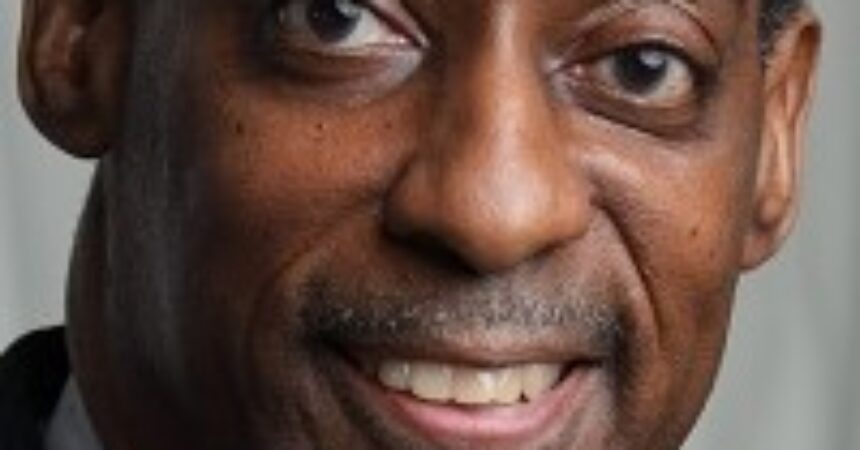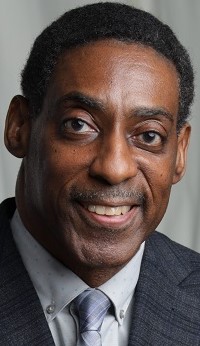
Black officers upholding our Black heritage

“I would like to make it crystal clear, I do not regret what I did. I am not sorry. I have not shed a tear for the innocent people I killed.” Those were the harsh words from Dylann Roof written in a journal six weeks after killing nine Black parishioners holding Bible study at the Emanuel AME Church in Charleston, South Carolina.
Roof is a White supremacist who made no attempts to hide his racial hatred. He claimed to have developed his White supremacist views after reading about the killing of Trayvon Martin.
“Our people are superior,” he said. “That’s just the fact.”
And like so many White supremacists, Roof is proud of the Confederate battle flag he displayed so often while posing for photos. For White southerners who continue to carry the spirit of the Confederacy dear to their hearts, Roof dispelled their defense of how the battle flag is only a symbol of ancestral and regional heritage.
“Heritage not hate” is the slogan, but they cannot have it both ways. The heritage and southern pride they glorify have a dark subculture filled with violence and hate toward people deemed inferior and not worthy of human dignity.
Historically, the Confederate battle flag has always been used by White Anglo-Saxon Protestants as a symbol of power and intimidation against people of color, but also against those of Catholic faith.
Roof took the time to research Black churches, and he understood the historical significance of the Black church within the community. When he killed nine innocent people, he knew precisely what he was doing and why. Each time he posed with the Confederate flag, he understood the hate-filled significance and intimidation the flag represents. Former South Carolina Gov. Nikki Haley said in an interview that Roof had “hijacked” the meaning of the Confederate battle flag for people who felt it meant “sacrifice and heritage.” The whitewashing of Black history curriculums and classes makes it easier for those like Gov. Haley to deny its dark side.
Lynching was more than just a person getting killed; it became a show. Victims were hanged from trees, bridges, and telephone poles. They were often tortured and mutilated before death: burned alive, castrated, and dismembered. Their teeth, fingers, ashes, clothes, and sexual organs were sold as keepsakes. Lynching was a community event with a carnival atmosphere in which tickets were sold. It became a spectator sport where lynch mobs could swell up to 15,000 people. Clergymen and business leaders often participated in the show.
Those who committed lynchings were rarely punished by law enforcement. The same lack of accountability was true of countless massacres of Blacks. They occurred primarily around the Reconstruction Era when Blacks were attacked and killed by White mobs whose goal was to suppress voting rights, land ownership, labor rights, economic advancement, education, and full citizenship for Blacks after the Civil War. The massacres sometimes resulted in the burning and destruction of homes, businesses, schools, and churches.
The cruel and senseless murders resulting from lynching and racial massacres are the byproducts of the institution of slavery and its uncivilized, barbaric acts. This is the heritage Dylann Roof represents and exposed.
When the news of Tyre Nichols’ death became public, it surprised many people because the five Memphis police officers fired and charged are Black. We are quick to assume those types of images of police brutality are from White officers. It illustrates the widespread problem within police departments in Memphis and everywhere.
Black officers using excessive force against Black citizens happens all the time, while it may not always result in a death or make national news. Nichols’ funeral was held on the first day of Black History Month, and it forces one to consider how we arrived at this point with Black officers wrongfully killing Black citizens. It is not part of our Black heritage or traditions handed down by previous generations.
The purpose of adding Black officers to all-White departments was to provide diversity and officers who could relate to members of the Black community. The aim was to build the necessary trust between the police and the Black community while offsetting the heritage of White supremacy, often embedded within police departments.
While many Black officers serve their communities with honor, we have those who will abuse the enormous amount of power given to them. It forces us to think about our Black heritage and compare it to the cultural traditions that historically target senseless beatings and deaths for people of color. We have a heritage where Blacks are overcomers. It is a heritage where we were oppressed, but not the oppressor. We were lynched, but we didn’t lynch others because of their race or religion.
“There is nothing more insulting and offensive to those of us who worked to open doors,” Rev. Al Sharpton said when he eulogized Nichols and referenced the Black officers, “that you walk through those doors and act like the folks we had to fight to get you through them doors!”
Sharpton added: “You didn’t get on the police department by yourself….People had to march and go to jail, and some lost their lives to open the doors for you, and how dare you act like that sacrifice was for nothing!”
Amen, Rev. Al.
David W. Marshall is the founder of the faith-based organization, TRB: The Reconciled Body, and author of the book God Bless Our Divided America. He can be reached at www.davidwmarshallauthor.com.







